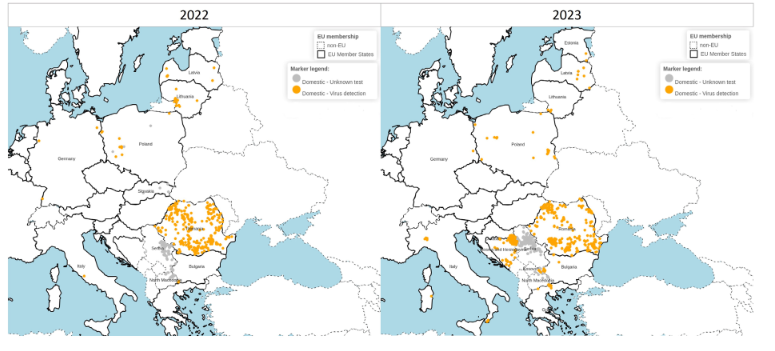((Automatic translation by Reuters, see disclaimer https://bit.ly/rtrsauto))
(Health Rounds is published Tuesdays and Thursdays. Think your friend or colleague should know about us? Send them this newsletter. They can also sign up here.) Posted by Nancy Lapid
Hello, Health Rounds readers! Today we present data on a new test that can quickly detect life-threatening sepsis in a hospital setting. We also have positive news for smokers trying to quit, as well as the first results of a small study that shows promise for an mRNA vaccine against the deadliest form of brain cancer.
New type of test quickly confirms sepsis
A new objective test may help speed up the diagnosis of life-threatening sepsis, according to a new report.
In general, doctors rely primarily on vital signs, clinical assessment and blood cultures, which can take several days, to identify the disease.
The IntelliSep test, which was approved in the U.S. last year to detect sepsis in adults, provides information about immune system activation and sepsis risk stratification in less than 10 minutes based on a blood sample, according to manufacturer Cytovale.
“Simply put, IntelliSep compresses white blood cells and characterizes their response—which differs between septic and nonseptic patients—using advanced machine learning technology,” the company explains on its website.
In 1,002 patients with evidence or suspicion of infection in the emergency departments of seven hospitals, the test was as good or better than other clinical indicators at identifying people who might have sepsis, and far superior to other methods at ruling out sepsis. The data was published in the journal Academic Emergency Medicine.
The test also predicted patient severity as measured by survival rates, length of hospital stay and use of hospital resources.
“This study is extremely promising as the first-ever objective measurement of immune activation” that will help emergency department staff “direct potentially septic patients to the appropriate path of care,” Dr. Hollis O’Neill of LSU New Orleans and Our Lady of the Lake Health said in a statement , who led the study.
If Quitting Smoking Failed, Backup Plans May Be Successful
Pfizer’s Chantix, a smoking cessation drug known chemically as varenicline, was more effective than combination nicotine replacement therapy (CNRT) with patches and lozenges for tobacco use, according to a new study.
The study also found that increasing the dosage of varenicline helped people quit smoking when drug addiction treatment failed on the first try.
The study involved 490 smokers who were randomly assigned to receive varenicline or CNRT for six weeks. After the first phase, those who failed to quit were re-randomized to continue, change or increase the drug dose for an additional six weeks.
Smokers who failed to quit using varenicline during the first six-week phase were seven times more likely to quit by the end of the second phase if their varenicline doses were increased than if they continued to follow the original treatment plan, researchers reported Thursday. in JAMA. .
Patients who failed to quit smoking with CNRT were twice as likely to successfully quit if they switched to varenicline than if they continued to try CNRT.
Patients who remained compliant with their original treatment regimen or switched from varenicline to CRNT had a “nearly zero” chance of successfully quitting smoking, the researchers said.
“These data suggest that continuing the same medication is not effective for smokers who are unable to quit within the first six weeks of treatment,” said study leader Paul Cinciripini of the University of Texas MD Anderson Cancer Center.
“Our study should encourage doctors to monitor their patients from the beginning of their smoking cessation journey and, if they are having difficulties, try a new approach, such as increasing the dose of medication.
Experimental vaccine may improve glioblastoma prognosis
In a first-in-human study of four adults with glioblastoma, the most aggressive and deadly brain cancer, the mRNA vaccine quickly reprogrammed the immune system to attack the tumor, researchers reported in the journal Cell.
According to the researchers, the mRNA technology is similar to that used for mRNA COVID-19 vaccines, with two important differences. The patient’s tumor cells are used to create a personalized vaccine, and the vaccine delivery mechanism has been redesigned.
Instead of injecting tiny individual lipid particles used to encapsulate the mRNA, the vaccine injects clusters of particles that wrap around each other.
“In the context of cancer, these clusters alert the immune system much more deeply than individual particles,” lead author Dr. Elias Sayur of the University of Florida said in a statement.
In each of the four volunteers, RNA was extracted from a surgically removed tumor, then messenger RNA (mRNA)—a sample of what’s inside the cell—was copied and wrapped in lipid nanoparticles to make the tumor cells resemble a dangerous virus that can promote an immune response when repeated. entering the bloodstream.
In less than 48 hours, the tumors transformed from so-called cold tumors with a suppressed immune response to hot tumors, or “a very active immune response,” Sayur said, adding that the speed of transformation “was very surprising.”
“This allowed us to very quickly activate the first part of the immune system against these cancers, which is important for unlocking the downstream effects of the immune response.
Although too little time has passed to assess the vaccine’s true clinical effects, patients lived disease-free longer than expected or survived longer than expected, the researchers reported.
The vaccine will then be tested in a small preliminary trial on adults and children with brain cancer.




